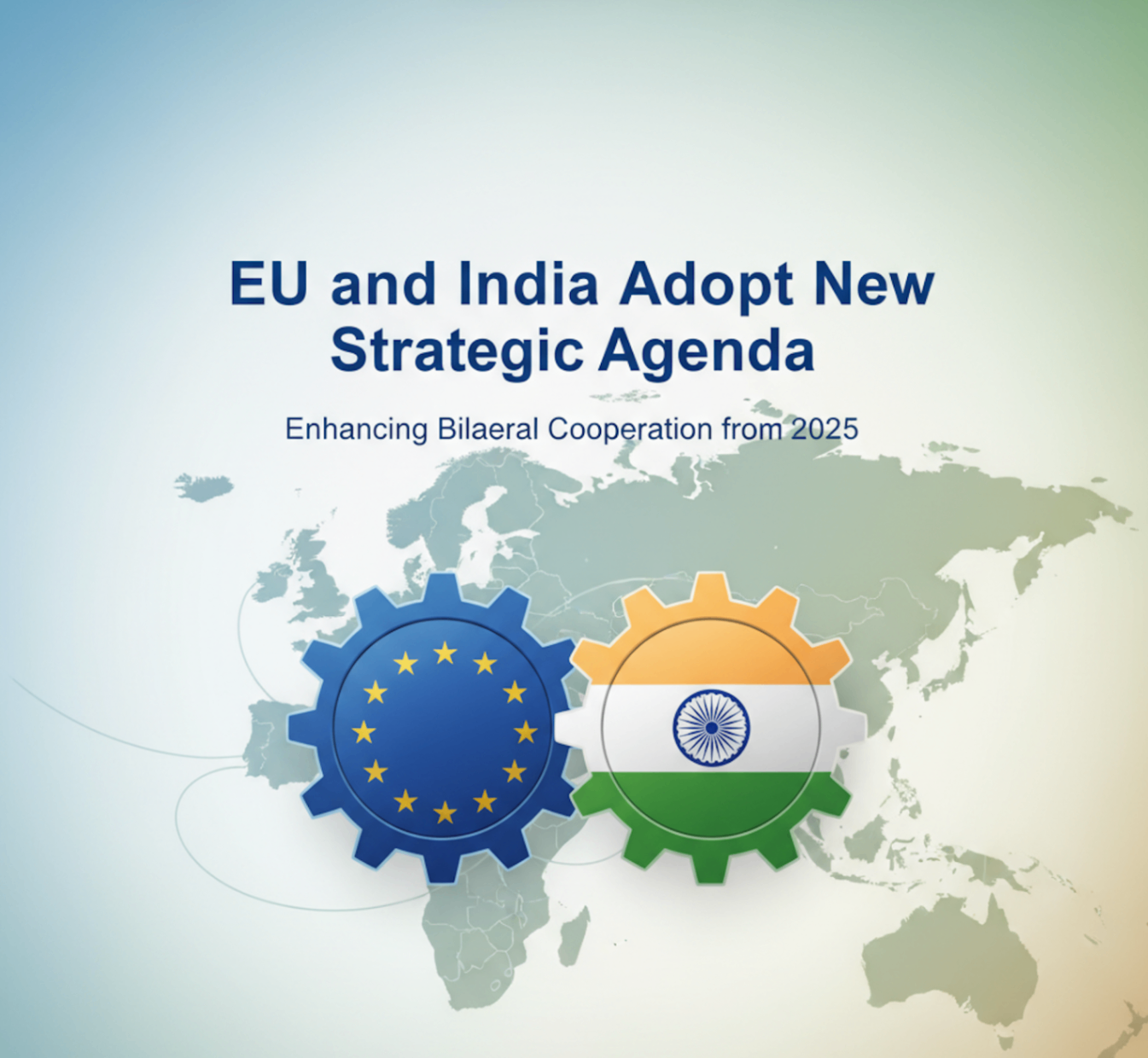EU and India Adopt New Strategic Agenda, Enhance Bilateral Cooperation from 2025

Team S
Posted on Wed, Oct 15, 2025
Share the article with your network
The European Union (EU) has agreed to adjust the carbon price paid by Indian exporters under the Carbon Border Adjustment Mechanism (CBAM) and simplify carbon tax rules for small businesses, according to the new Strategic EU-India Agenda adopted by the EU's 27-member bloc. The CBAM tax, set to be implemented from January 2026, targets carbon emissions in the production of selected products including iron and steel, aluminium, cement, electricity, hydrogen, and fertilisers, with a threshold set for emissions beyond which the tax applies.
Indian exporters will benefit as the carbon price effectively paid in India under its Carbon Credit Trading Scheme will be deducted from the CBAM financial adjustment. This arrangement aims to support Indian exporters who reduce emissions in CBAM-covered goods. Small businesses exporting to the EU will also benefit from simplified rules related to the carbon tax. The EU noted that India's carbon credit scheme is developing quickly, and lessons from the EU's Emissions Trading Scheme on monitoring, reporting, verification, and sector standards can assist India in this area.
The EU also communicated the agenda's broader objectives, which include better coordination of bilateral cooperation, tackling global challenges, and supporting the conclusion of the India-EU Free Trade Agreement by the end of 2025. Skills mobility is addressed through a pilot European Legal Gateway Office to facilitate labor mobility, covering study, work, and research frameworks.
Further elements of the agenda emphasize reinforcing supply chains, promoting technologies and digital cooperation with a focus on economic security within the Trade and Technology Council, and expanding tech partnerships. This includes proposing an EU-India startup partnership and inviting India to associate with the EU’s Horizon Europe research programme.
The agenda outlines initiatives for decarbonisation and a clean energy transition, focusing on renewables, green hydrogen production capabilities, and expanding green finance. Other priorities include strengthening food security, health, climate and disaster resilience, as well as security and defense cooperation. Regional connectivity projects such as the India-Middle East-Europe Economic Corridor and enhanced trilateral cooperation with third countries under the Global Gateway initiative are also included as key agenda items.
This joint agenda aims to deepen EU-India cooperation across economic, technological, environmental, and strategic areas. It reflects ongoing efforts to build closer trade relations and address shared global challenges systematically.
Read more: https://www.eeas.europa.eu/sites/default/files/2025/documents/JOIN_2025_50_1_EN_ACT_part1_v9.pdf
---
SignUp to the Europe-India digital bridge for tech business and product leaders scaling between markets www.startupeuropeindia.net
You may also like
Sarah J
Wed, Feb 4, 2026
France Pushes State Workers Off Zoom as Europe Moves Toward Tech Sovereignty

Sarah J
Tue, Feb 3, 2026
India and the United States Seal Major Trade Deal; Tariffs Slashed, Markets Rally

Sarah J
Sat, Jan 31, 2026
India-EU Trade Pact Opens $572 Billion Pharmaceuticals and MedTech Market, Boosting Exports and Competitiveness
